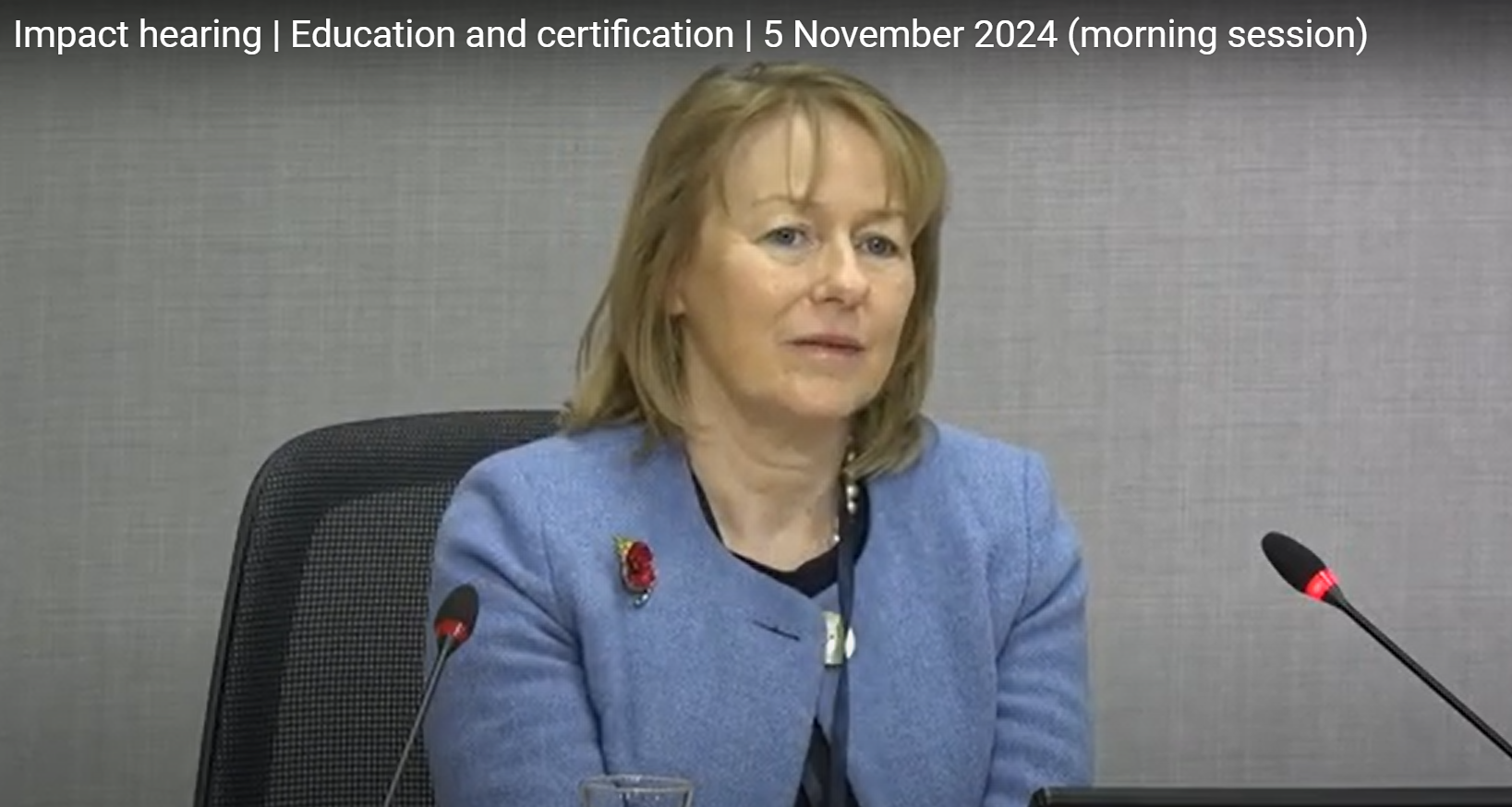Children ‘missed fun, friends, family and freedom’ during lockdown
Our Chief Executive, Marguerite Hunter Blair, recently told the COVID inquiry that play allows children to develop cognitive, social and motor skills, but the lack of outdoor spaces to play during the pandemic had an “unequal impact” on marginalised families.
Marguerite praised the Scottish Government for becoming the first nation to reopen play areas and for allowing children under 12 “unrestricted” play, the inquiry heard.
She praised the Scottish Government for becoming the first nation to reopen play areas and for allowing children under 12 “unrestricted” play, the inquiry heard.
Research shows many families experienced “deep isolation” while living in overcrowded flats in urban areas, and many children from asylum seeker or migrant families lacked wider networks.
Children from “marginalised” backgrounds suffered from the lack of outdoor play opportunities, compared to those with private gardens, or children from deprived backgrounds who had access to green spaces.
“Children really wanted their schools reopened and their clubs reopened, they wanted to visit their friends and they missed their families. For children who don’t have bigger families, it was really important to get their social networks resuming.”
She told the inquiry many parents struggled to adjust to working from home while also taking on more responsibility for their child’s education, and that two out of three “pillars of learning” – environment and other children – were taken away during the pandemic, though they still had the third which is adults.
“Some of the contributions from children were heart-breaking. They missed fun, friends, family and freedom … They missed the school clubs they went to and they missed going out playing football or hanging around. There was a lot of stress, anxiety and gratitude.”
She said children were aware of what was happening, and some put tape over the mouths of their dolls or teddies to copy mask-wearing, while others would invite a group of teddies to a birthday party before excluding some to comply with ‘rule of six’, the inquiry heard.
“Being in a ‘bubble’ led to children playing in more solitary groups – I think there’s a clear indicator that learning development was slower. Since the Transformation of Play report in 2017, children were moving indoors and becoming more sedentary. The opportunities for risk-competence is diminishing. It was there before Covid but it is increasing.”
She said children learn from being in a “cohort” including an age mix and that not all parents were able to provide the environment needed for play.
“I think a lot of learning has happened not just from the pandemic but generally.”
She criticised the media for demanding “the right to go to the pub” and said a child’s right to play was enshrined in law.
“Play is a serious business. It is lovely and quite delightful to see children play. During Covid, children lost two pillars of learning – they lost access to their environment, and they lost access to other children.
“Children are naturally curious, the whole purpose of play is about fostering curiosity, trying to encourage it, it is how they make sense of the world around them. It is so important that children are brought together in settings when they are young.
Our research with children during COVID included a large survey of children’s voices. One child said: “Play gives you a sense of freedom when you have none”.
The recording of her evidence can be found here Impact hearing | Education and certification | 5 November 2024 (morning session)





